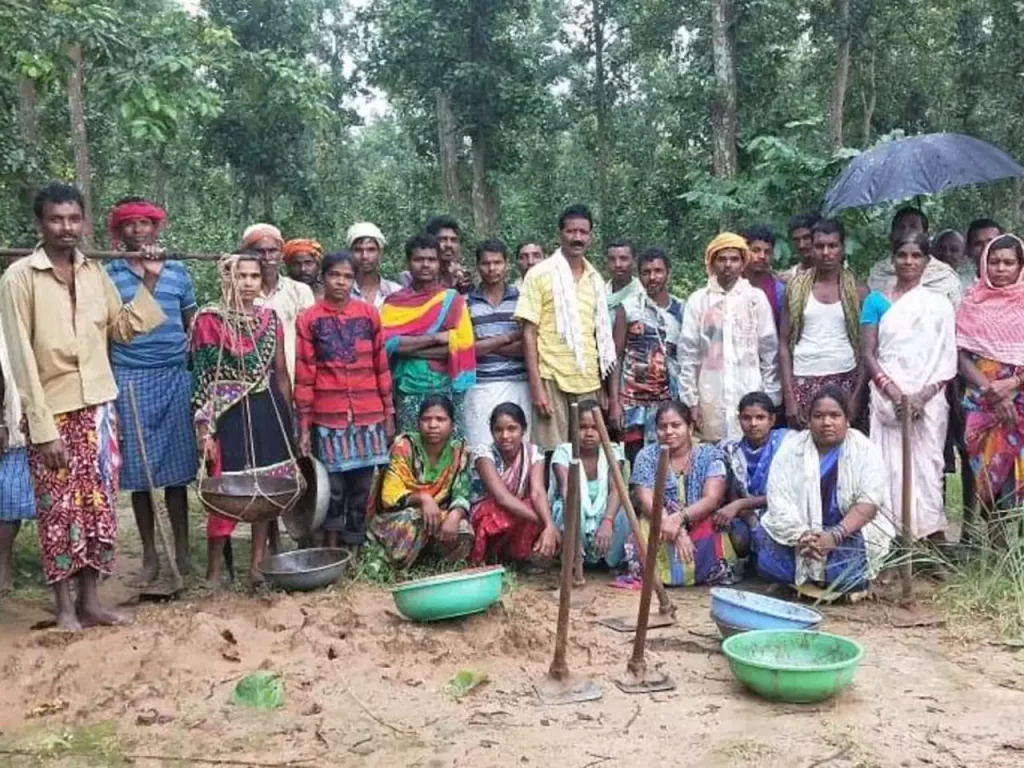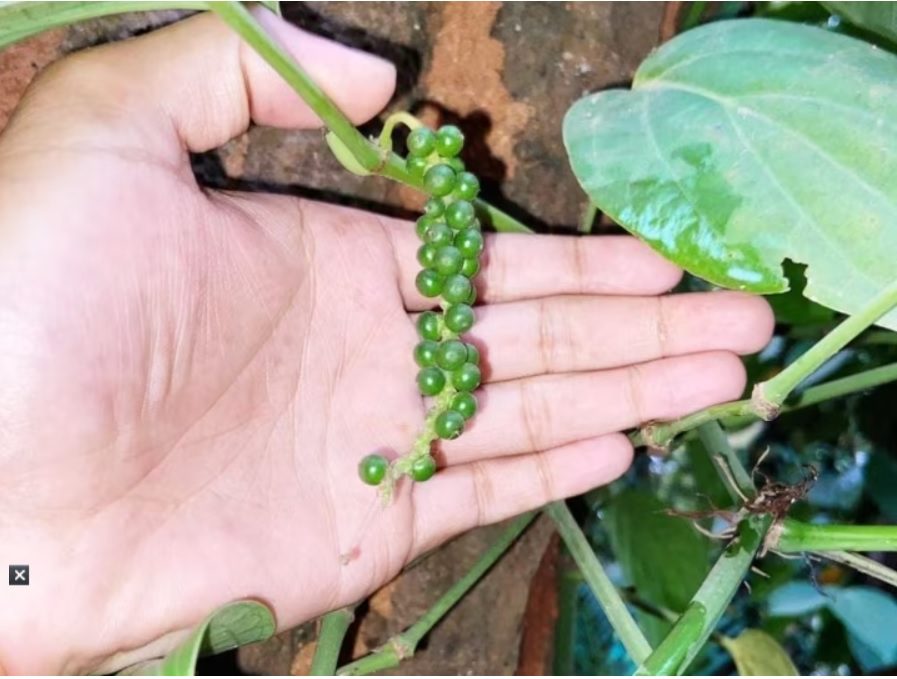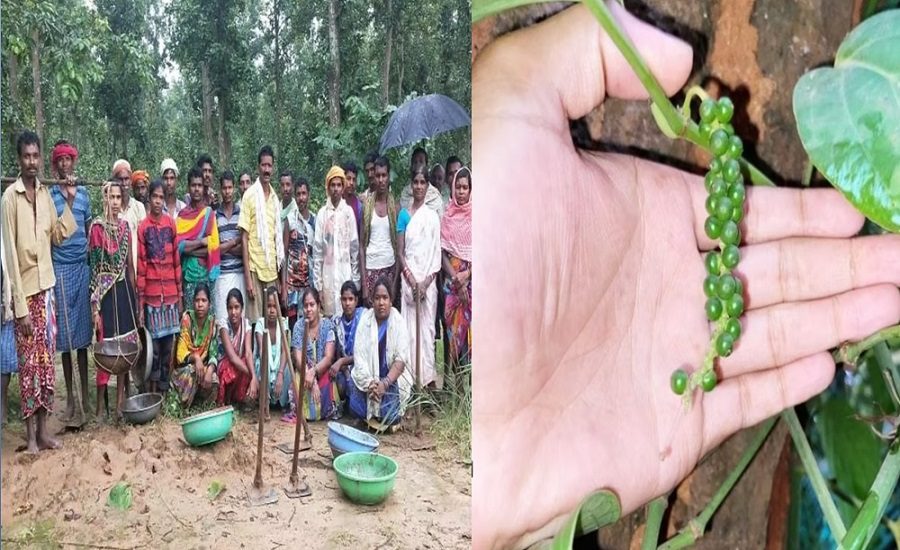Lo and Behold, Chhattisgarh is chipping away at Kerala’s reputation as spice capital of India. After successfully growing coffee, the state is cultivating black pepper.
Even an unsuccessful attempt made sometime ago, failed to deter the state from make another effort at growing spices. With help of the district administration the farmers made seemingly impossible task become possible. Black pepper is now being cultivated in many villages of Bastar district for the last 3 years. More than 100 farmers are now cultivating black pepper in Bastar.
Speaking to Indian Masterminds, 2011 batch IAS officer and collector of Bastar, Mr. Chandan Kumar said, “We started off with coffee plantation. In between Coffee plants, silver oak is planted. In a bid to further increase farmers’ income, black-pepper is being grown along the silver oak trees.”

An yield of up to 1 kg green berries/bush would be obtained in the third year after planting. The yield increases during subsequent years about 2-3 kg green berries/bush is expected be in the fifth year of planting. “Average yield is expected to be 1410 to 2100 kgs per hectare. This will give them an income of approx Rs. 3 to 5 lakh/ha annually. A black pepper plant will remain productive for next 40 years”, Mr Chandan Kumar told Indian Masterminds.
BLACK GOLD
Black-pepper, famous as “Black Gold” and also known as ‘King of Spices’, is one of the important agricultural commodities of commerce and trade in India since pre-historic period.
The crop is the major source of income and employment for rural households in the predominantly pepper growing State of Kerala where more than 2.5 lakh farm families are involved in pepper cultivation.

But now, the farmers of village like Darbha and Sulphipadar are growing black pepper under the guidance of College of Horticulture and Research Station, Jagdalpur and the plants have started to bear fruits.
MAIN BENEFICIARIES
Mostly, tribal farmers are involved in pepper’s cultivation. Administration is providing them training and all possible help for pepper cultivation. Presently four varieties of black pepper have been planted in the orchard in Bastar.

Mr Chandan said that studies have been done in this regard by horticulture department. “We have found that climatic condition, the soil condition, the moisture content, rainfall and the altitude of this place is perfectly fine for growing black pepper. So we are keeping our finger crossed,” he added.
#Bastar के किसान खेती में कई नवाचारों को अपनाकर आर्थिक रूप से सशक्त हो रहे हैं और अब किसान वैश्विक स्तर पर मांग वाली काली मिर्च की खेती करेंगे। बस्तर में काली मिर्च के उत्पादन की संभावना को देखते हुए किसानों को प्रशिक्षण दिया जाएगा। @ChhattisgarhCMO @DPRChhattisgarh @chandan_ias pic.twitter.com/20pCprIoMa
— Bastar District (@BastarDistrict) December 28, 2022


































